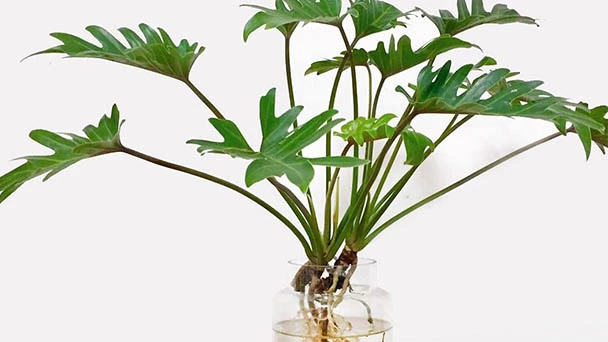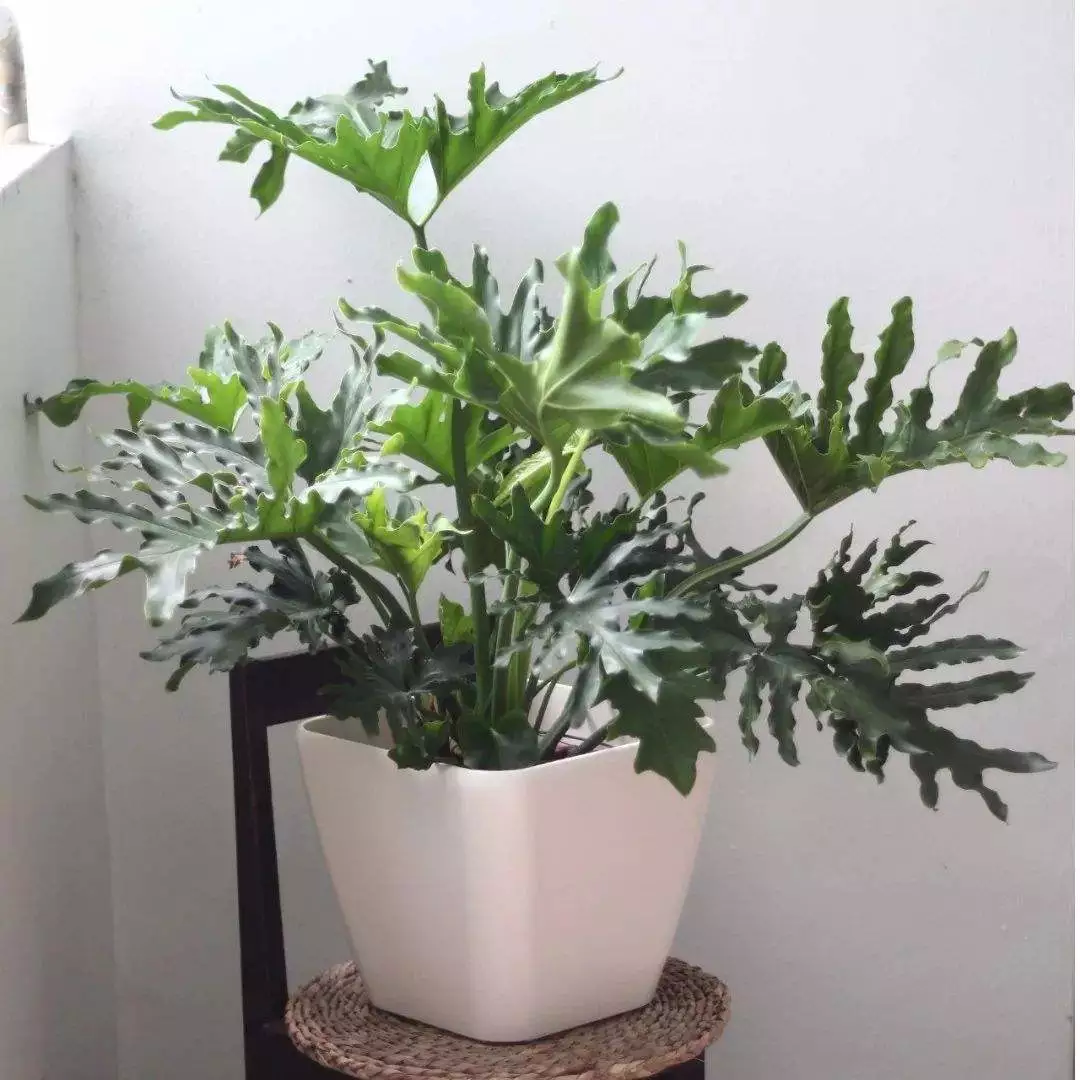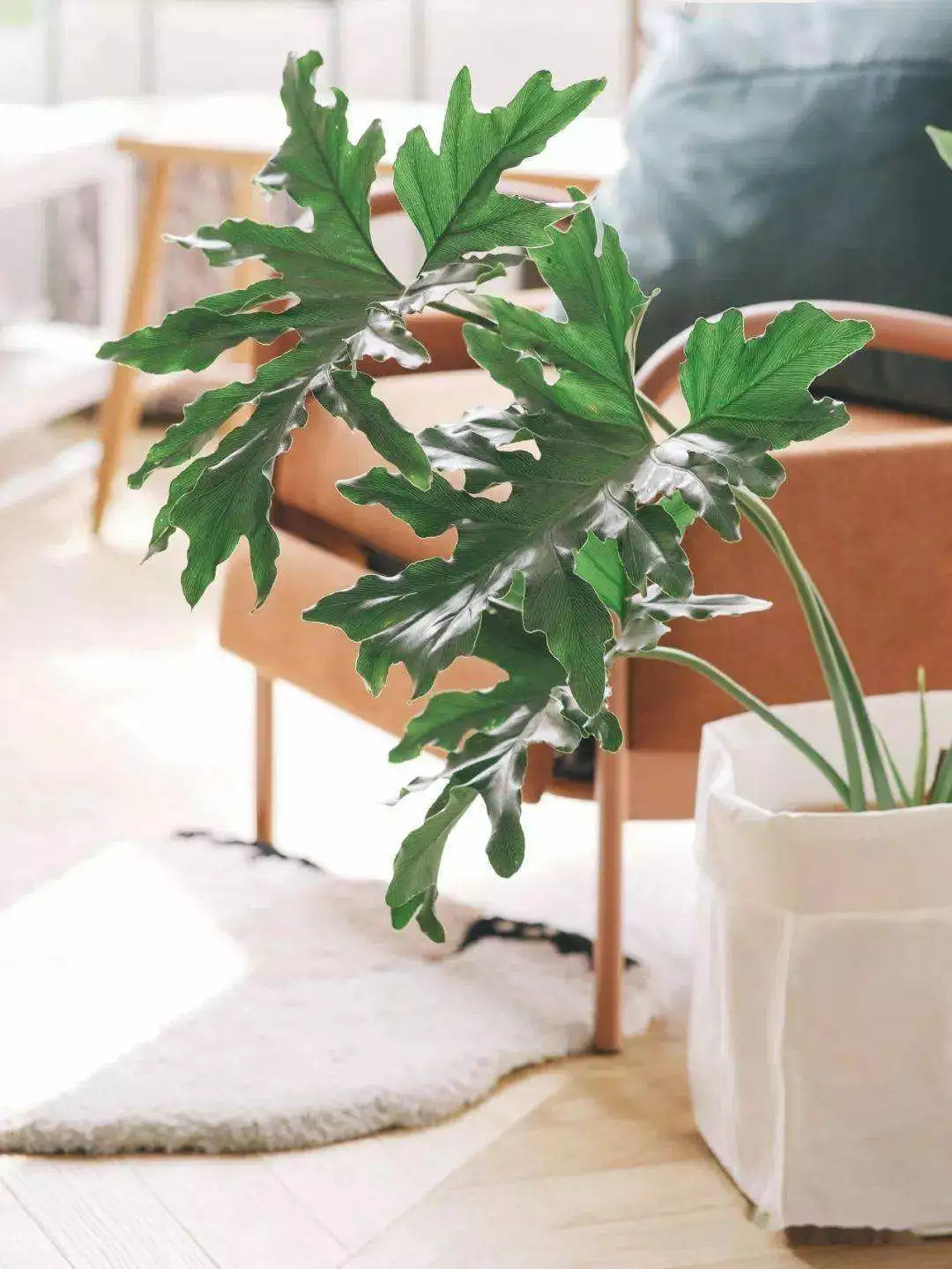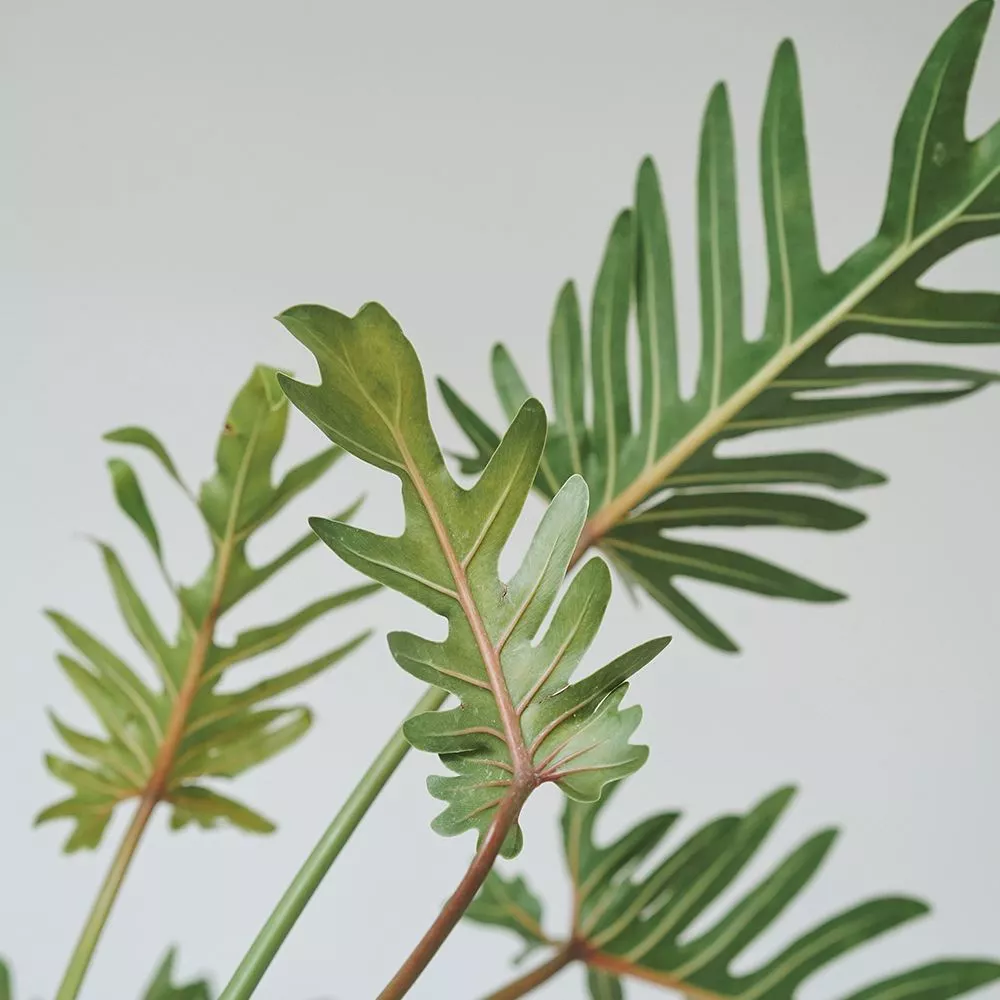How To Grow And Care For Tree Philodendron (Thaumatophyllum Bipinnatifidum)?
Written by Ivy
Dec 31 2021

Tree Philodendron (Thaumatophyllum Bipinnatifidum) is a perennial evergreen herb with pinnately split leaves. It is this unique shape that impresses the world, and it is often placed by the water to watch and comment. Tree Philodendron is one of the indoor foliage plants widely used in families and public places at present because of its strong plant, peculiar leaf state and slightly shade tolerance.

Tree Philodendron likes half shade, but avoid direct light to avoid burning, yellowing or even scorching of leaves. It is suitable to be placed in shade or bright indoor light. Pay attention to ventilation and cooling when it is hot in summer and autumn. In winter and spring, we can give tree Philodendron some light in the morning and evening. If maintenance in indoor dark environment will make the leaf color dim or the plant thin and long, it can be placed in bright light for supplementary lighting.
Tree Philodendron love larger air humidity and humid environment. When high temperature, it is often necessary to moisturizing the leaves and surrounding areas to keep the soil moist but not to accumulate water. In winter, it can keep basin soil slightly dry to enhance cold hardiness, and leaves can be sprayed in warm water at midday after drying.

Tree Philodendron Quick InfoTree Philodendron Care in DetailTree Philodendron WateringTree Philodendron LightTree Philodendron HumidityTree Philodendron TemperatureTree Philodendron SoilTree Philodendron FertilizerTree Philodendron PruningTree Philodendron RepottingTree Philodendron Pest And Disease ControlTree Philodendron PropagationTree Philodendron Propagation from Stem CuttingTree Philodendron Propagation from SeedTree Philodendron Propagation from DivisionTree Philodendron Propagation from Adventitious Root
Tree Philodendron Quick Info
| Botanical/Scientific Name | Thaumatophyllum Bipinnatifidum |
| Common Name | Tree Philodendron |
| When to Grow/Bloom/Harvest | Grow in the Spring |
| Uses | Purifying the air |
| Origin | South America |
| Light Care | Medium light |
| Soil Care | Medium relative humidity and moist soil |
| Temperature Care | 24-27ºC (75-80ºF) |
| Humidity Care | The plants like humidity |
| Watering | Once a week |
| Pruning Care | Prune in spring or summer |
| Fertilizer Care | 10-4-3 fertilizer |
| Propagation | Stem cuttings |
| Toxic | Poisonous to cats |
| Flower Color | White |
Tree Philodendron Care in Detail

Tree Philodendron Watering
The leaves of tree Philodendron are large and soft, and the transpiration of its leaf surface is large. The times and amount of watering should be increased. The basin soil is kept slightly wet, which is most beneficial to the growth of tree Philodendron. It can not only keep the water and air in the basin soil in a reasonable state, so as to fully supply the water and oxygen needed for the growth of flowers. It can also strengthen and maintain soil respiration. Because after potting for a period of time, the gap of the basin soil will be filled with the stale air discharged by the tree Philodendron root system and soil microorganisms during respiration. With the infiltration of watering water, the stale air will be discharged, and the fresh air will enter the basin soil.Tree Philodendron Light
Tree Philodendron is shade resistant and afraid of strong light. When exposed to strong light, the leaves turn brown and the aerial roots dry. The spotted leaf species like half shade and bright light, and the leaf color is more vivid. Tree Philodendron has strong negative resistance. It can be placed for 60 ~ 90 days in rooms with strong light, 30 days in dark rooms, and 15 days in dark conditions. Open planting in summer should avoid direct sunlight, which can cover 50% of the sunlight.Tree Philodendron likes half shade, but avoid direct light to avoid burning, yellowing or even scorching of leaves. It is suitable to be placed in shade or bright indoor light. Pay attention to ventilation and cooling when it is hot in summer and autumn. In winter and spring, we can give tree Philodendron some light in the morning and evening. If maintenance in indoor dark environment will make the leaf color dim or the plant thin and long, it can be placed in bright light for supplementary lighting.
Tree Philodendron Humidity
Tree Philodendron grows in tropical rain forest and has high requirements for humidity. During the growing period, the basin soil shall be kept moist, especially in the high temperature period in summer. The water shall be sufficient in the growing season. In addition to watering every day, we shall often spray water on the leaf surface and ground to increase air humidity. Keep the air humidity 70% ~ 80%. However, if the temperature is lower than 15 ℃, the watering amount shall be reduced.Tree Philodendron love larger air humidity and humid environment. When high temperature, it is often necessary to moisturizing the leaves and surrounding areas to keep the soil moist but not to accumulate water. In winter, it can keep basin soil slightly dry to enhance cold hardiness, and leaves can be sprayed in warm water at midday after drying.
Tree Philodendron Temperature
The optimum temperature for tree Philodendron is 24-27 º C (75-80 º F). In summer, spray and humidification and ventilation should be strengthened to avoid diseases and pests. In winter, we should pay attention to placing the tree Philodendron indoors with sufficient light and reducing the amount of watering to avoid cold wind.
Tree Philodendron Soil
Potted tree Philodendron usually uses 20 ~ 25cm pots. The soil should be fertile, loose and slightly acidic sandy loam with good drainage. Potting soil can be made of humus soil, peat soil and a small amount of river sand. The basin bottom should be padded with more broken tiles and bricks, which is conducive to the growth and development of roots. The soil of tree Philodendron should be fertile, loose and well drained sandy loam. We can choose universal nutrient soil or prepare Peat: coconut bran: Perlite = 1:1:1. We need to add an appropriate amount of Haitian universal organic granular fertilizer.Tree Philodendron Fertilizer
In the appropriate temperature, we can apply universal concentrated liquid fertilizer once a month during the growing season of tree Philodendron. The fertilization is mainly nitrogen fertilizer, supplemented by potassium fertilizer. It is forbidden to apply nitrogen fertilizer, but phosphorus and potassium fertilizer are insufficient. We will stop fertilizing tree Philodendron in winter.Tree Philodendron Pruning
Tree Philodendron needs regular pruning. We can trim those unhealthy leaves from the branches and grow more branches; The tree Philodendron will grow thicker after construction! It can reduce overgrowth in low light environment. Please use clean scissors when pruning.Tree Philodendron Repotting
We'd better repot tree Philodendron repotting in spring in about two years. Of course, the specific situation depends on the growth of the plant, but generally, the time for changing pots is like this. In order to ensure the comprehensive absorption of water and nutrients, we need to cut off the old roots, diseased roots, dead roots, weak roots, rotten roots and over long roots when repotting tree Philodendron. The roots with poor growth or curly can also be properly trimmed, which is also conducive to the germination of new roots of tree Philodendron. When disinfecting, it is best to use medical eye ointment or sulfonamide ointment to effectively prevent bacterial infection. In addition, tree Philodendron is afraid of ponding. When changing the basin, he should pad some broken tiles or gravel at the bottom of the basin.Tree Philodendron Pest And Disease Control
The common diseases of tree Philodendron include leaf spot, anthrax, etc., which can be controlled with wettable powders such as carbendazim, methyltobutrazine and zineb, and the effect is obvious. If the leaves of tree Philodendron turn yellow and have burnt edges, we need to trim them in time to reduce nutrient loss. Tree Philodendron pests mainly include red spider and scale insects, which can be controlled by spraying special insecticides. In addition, the control of red spider can be prevented by increasing air humidity and strengthening ventilation to prevent scale insects.
Tree Philodendron Propagation
Tree Philodendron Propagation from Stem Cutting
Stem cutting is good from May to September. We can cut 2 ~ 3 sections of strong stems and directly insert them into coarse sand or water moss to keep them moist. The temperature is 22 ~ 24 ℃, and the roots are born 20 ~ 25 days after insertion.Tree Philodendron Propagation from Seed
We can also use indoor seedling tray for sowing. Tree Philodendron seeds should be collected and sown immediately after maturity. The sowing soil is made of sandy humus soil and a small amount of cow dung. Ensure that the bed temperature and ambient temperature are between 25 ~ 30 ℃, and the seedlings can emerge soon. They germinate 10 ~ 15 days after sowing. The temperature is too low to emerge easily. When the seedling height is 5 ~ 6 cm, move it to an 8 cm basin.Tree Philodendron Propagation from Division
Vigorous perennial plants can sprout at the base. When the growth of tree Philodendron is high, we can cut the lateral branches with air rooting for direct potting or remove the terminal buds to promote the length of branches. When the lateral branches are 15 ~ 20 cm, we can cut the potting together with air rooting.Tree Philodendron Propagation from Adventitious Root
The propagation method can reproduce tree Philodendron in large numbers. The shoot top or axillary bud was used as explant. After regular disinfection, we inoculated on MS medium supplemented with 4 mg / L 6-benzylaminoadenine and 2 mg / L indoleacetic acid. Calli and adventitious buds grew after 6 ~ 8 weeks. Then we can transfer the adventitious buds to 1 / 2ms medium supplemented with 2 mg / L indoleacetic acid, and induce new roots and complete Plantlets in about 3 ~ 4 weeks.Latest Updated
- Benefits of Bugleweed - 7 Science-backed Health Benefits
- Bugleweed Dangers & Side Effects - Is It Poisonous?
- How to Plant Evergreen Trees - What You Should Know
- When to Plant Evergreens - Grow Guide for Evergreen Trees
- 12 Wonderful Evergreen Shrubs for Your Garden
- 12 Popular Evergreen Plants with Pictures for Beginners
- When And How To Prune A Lilac Bush Like a Pro
- How to Grow & Care for Lilac Vine (Hardenbergia Violacea)
- Japanese Lilac Tree (Syringa Reticulata) Care & Propagation Guide
- Shumard Oak Pros and Cons - What to Know
Popular Articles
- Winter maintenance of Antirrhinum Majus
- How to Grow Terminalia Mantaly Tree
- How to Grow and Care for Crossostephium Chinense
- How to grow Antirrhinum Majus in spring
- Peristeria Elata (Dove Orchid) Profile: Info & Care Guide
- Underwatered Snake Plant (Sansevieria Trifasciata) - Signs And How To Fix
- How to Care for Brazilian Jasmine Plant (Mandevilla Sanderi)
- How to Grow & Care for Graptopetalum Purple Delight in Summer
- Rosa Chinensis (China Rose): Plant Growing & Care Tips
- How to Care for Baby Sun Rose (Aptenia Cordifolia)